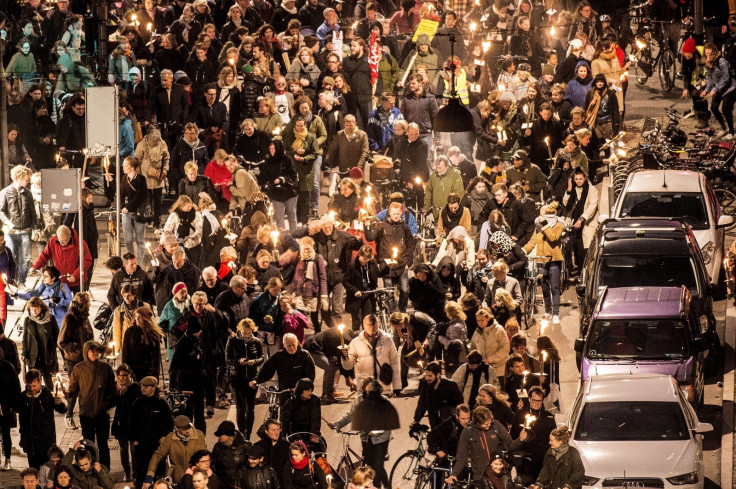3 refugees stabbed by pensioner outside church in Denmark

KEY POINTS
- Police released the attacker from custody and said the incident would be treated as aggravated assault instead of attempted murder.
- Denmark has taken an increasingly hardline stance against refugees and asylum-seekers in recent years.
Three refugees were stabbed by a drunk pensioner outside a church on Saturday (17 February) in Denmark, where anti-immigrant sentiments have flared in recent years.
A Syrian, Afghan and Iraqi man were injured in the knife attack in the northern city of Heilbronn. The 25-year-old Iraqi man was taken to hospital with severe injuries. The other two refugees were treated at the scene of the crime.
Heilbronn's mayor, Harry Mergel, condemned the attack and called on people to "treat refugees with humanity."
"I am deeply troubled by this revolting crime and my thoughts are with the victims. I hope they won't suffer lasting consequences," he said.
The attacker was a drunk 70-year-old man with dual German and Russian nationality, according to Danish news outlets.
He has since been released from custody. Police said he was released because he does not have a criminal record and that the crime is being treated as aggravated assault, rather than attempted murder.
The Heilbronner Stimme newspaper criticised the police for releasing the attacker.
"You can only shake your head at the fact that the police released a man who would have kept on attacking had it not been for the courage of people nearby. It is highly likely this was a racist attack and it could have easily led to death," the newspaper wrote.
Anti-immigrant sentiments have flared in Denmark in recent years, following the influx of over 36,000 people when the refugee crisis broke out at the start of 2015.
Since a harsh new immigration law, which allows Danish authorities to seize any assets exceeding over $1,450 (£1,038), was passed in January 2016 the number has drastically decreased. The law also extended the family reunification period from one to three years.
In December, Denmark opted out of the UN resettlement programme, after passing a law that allows the government to determine how many refugees enter the country instead of accepting a fixed Europe quota.






